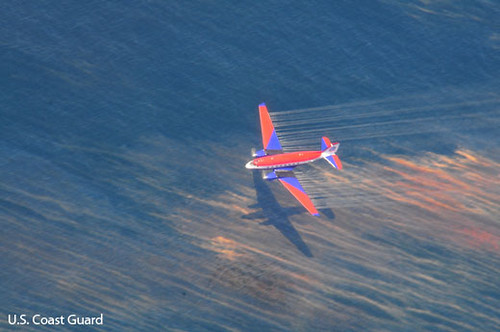美國聯邦和保育團體日前達成和解協議,聯邦政府承諾審慎分析加州除油劑施行計畫可能產生的影響,以確認使用化學藥劑來處理外洩的油料,不會危及到瀕危野生動物。
加州除油劑計畫(California Dispersants Plan)定案於2008年,該計畫授權相關機構在處理加州近海油料外洩事件時,使用化學除油劑。
但三個保育組織提出訴訟,指控聯邦政府斷言除油劑不會對瀕危物種產生危害,是在實際使用之前的評估,但卻未作非事後調查;2010年墨西哥灣BP深水地平線漏油事件便是其中的一例。

與衝浪者基金會和太平洋環境組織共同提出訴訟之生物多樣性中心的Deirdre McDonnell指出,「我們不該在漏油事件後,使用除油劑讓野生動物和人類受到二次傷害。」
「在BP漏油事件當時,沒人知道化學除油劑會造成什麼樣的長期影響,我們現在仍在了解那些除油劑對魚類及珊瑚產生了什麼樣的傷害。在漏油事件發生後,人類可以避免去海裡,但海洋生物卻沒有選擇的餘地。牠們被迫要在那些我們放入水中的化學物質(無論是外洩的油料還是除油劑)當中覓食、呼吸和游泳。」
根據保育團體和政府在美國北加州地方法院所簽訂的和解協議,環保署和海巡隊必須在2014年1月31日之前,發涵要求國家海洋漁業署和魚類暨野生動物署共同會商,討論除油劑對瀕危物種所產生的影響。
依照美國《瀕危物種法》規定,環保署和海巡隊進行任何會影響瀕危野生動物的活動時,必須會請海洋漁業署和魚類暨野生動物署提供專業意見。
除油劑是用來把漏油變為較小粒子的化學物質。理論上,以除油劑處理過的油污,教容易被微生物消化掉,或以更快速度稀釋掉。
然而,原告組織表示,除油劑和擴散的由污也同時讓毒素在海洋食物鏈中循環。此外,在另一份報告中發現,由COREXIT9527除油劑分解的油料,比起未處理之油污,會對海鳥羽毛中的絕緣性造成更嚴重的損傷,使得鳥兒更易因失溫而死亡。
加州除油劑計畫並未保證其所使用的化學除油劑,不會對野生動物產生傷害。
The federal government must analyze the effects of the California Dispersants Plan to determine whether the chemicals that break up oil spills would harm endangered wildlife, under a legal settlement filed today by federal agencies and conservation groups.
Finalized in 2008, the California Dispersants Plan authorizes the use of chemical dispersants in the event of an oil spill in California federal offshore waters.
Three conservation groups sued the federal government to force determination of the dispersants' safety for endangered species before the chemicals are used to break down spilled oil, not afterwards, as occurred during 2010 BP Deepwater Horizon oil spill in the Gulf of Mexico.
"We shouldn't add insult to injury after an oil spill by using dispersants that put wildlife and people at risk," said Deirdre McDonnell of the Center for Biological Diversity, which brought suit with Surfrider Foundation and Pacific Environment.
"During the BP oil spill, no one knew what the long-term effects of chemical dispersants would be, and we're still learning about their harm to fish and corals, McDonnell said.
"People can avoid the ocean after an oil spill, but marine animals can't. They're forced to eat, breathe and swim in the chemicals we put in the water, whether it's oil or dispersants," she said.
The settlement, filed in the U.S. District Court for the Northern District of California, states that on or before January 31, 2014, the U.S. Environmental Protection Agency and the U.S. Coast Guard must make a written request to the National Marine Fisheries Service and the Fish and Wildlife Service for consultation on the effects of dispersants on endangered species.
The U.S. Endangered Species Act requires the EPA and Coast Guard to consult with the Fisheries Service and Fish and Wildlife Service regarding any activities that might affect endangered wildlife.
Dispersants are chemicals used to break oil spills into tiny droplets. In theory, this allows the oil to be eaten by microorganisms and become diluted faster than if left untreated.
However, say the plaintiff groups, dispersants and dispersed oil can also allow toxins to accumulate in the marine food web.
The plaintiff groups point to other studies finding that oil broken up by the dispersant COREXIT 9527 damages the insulating properties of seabird feathers more than untreated oil, making the birds more susceptible to hypothermia and death.
The California Dispersants Plan does not guarantee that the dispersant chemicals will be safe for wildlife.
※ 全文及圖片詳見:ENS




